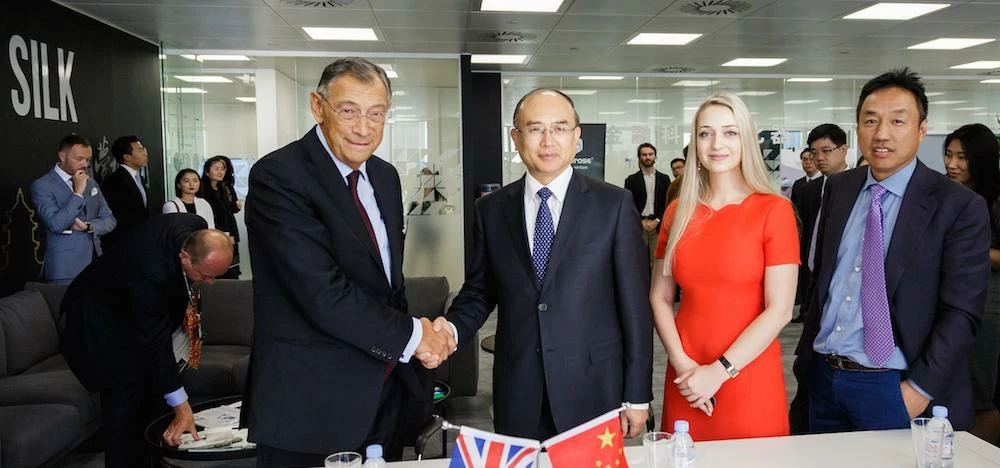Equity crowdfunding platform Crowdcube has acquired secondary dealmaking startup Semper as it looks to jump on the secondaries bandwagon picking up pace in Europe.
The deal will see Semper integrated into the Crowdcube brand over the coming months, and founders Mathias Pastor and Balthazar de Lavergne — ex-directors at French startup community The Family — stay on to lead the secondary side of the business.
Since launching 2013, UK-based Crowdcube has run crowdfunding campaigns for the likes of Monzo, Revolut and Qonto, and raised a total of £1bn for more than 1,300 businesses.
While the secondaries market has been slow off the mark in Europe despite the funding cooldown, growth investors are pushing for deals as they look to deploy the large pools of capital gathering dust amid a dearth of major funding rounds.
UK-based Crowdcube is banking on that trend making its way down the VC pecking order as it absorbs compatriot Semper into its retail investing platform.
“The funding crunch means businesses are looking for [secondaries] to deliver liquidity more frequently,” says Matt Cooper, cofounder and co-CEO at CrowdCube. “We’re very bullish that the macro events that unfolded over the last year are going to continue into next year.”
What Semper does and why Crowdcube bought them
Founded in 2021, Semper helps startups’ sell secondaries for shareholders — like founders, investors and employees — offering software, financial and regulatory infrastructure and access to investors. Like Crowdcube, the deals it facilitates are startup-led.
Semper has supported €10m worth of secondary sales since launching, including for companies like Swedish digital health scaleup Kry, French DIY marketplace ManoMano and French mobile games developer Voodoo.
It counts investors like Frst Capital, Kima Ventures, FJ Labs and Nordstar among its cap table, who all participated in a €3m seed round at the end of 2021.
“That’s about 100 years ago as far as venture cycles go,” says Pastor.
Conversations about acquisition began before the summer, says Cooper, and will see Semper’s shareholders take equity in the combined entity, although Crowdcube declined to say how much.
While Semper has, up to this point, only worked with professional and institutional investors, its integration into Crowdcube will see the platform offer secondary deals to retail investors, too.
Over the past 18 months, Crowdcube has processed £20m in secondary share sales as volumes have sharply increased, says Cooper.
Its acquisition of Semper will allow it to double down on the asset class, and expand its offering to run crowdfunding deals for later-stage companies, Cooper tells Sifted.
“There’s a point in time where lots of businesses move out of our orbit because they’re too big or too far into that growth stage part of their life cycle.” Secondary sales gives Crowdcube the chance to offer retail investors deals in late-stage companies, he adds.
The rise of secondaries
The secondary market has been growing in Europe for the past few years as turning cold hard equity into cash has become far less taboo for founders and startups.
Several secondary-specific funds have also launched in recent times, to take advantage of early investors and employees looking to cash out as startups stay private for longer.
While much of the motivation to sell secondaries comes from employees looking to sell equity, early-stage investors are driving the volume, says Pastor.
“People who invested in unicorns at seed or Series A — whose investment represents a significant part of the fund value — need to show some cash returns to LPs to justify raising the next fund,” he says.
The most meaningful discounts in secondaries are in the sectors that saw big Covid booms — like healthtech and fintech, says Pastor.
“You can look at the public market for comparables. Some public companies [in those sectors] were trading at 20 times their revenues [during the post-Covid boom] and now all of a sudden their valued four times revenues.”
The French connection
Crowdcube has been expanding its business in Europe since gaining regulatory approval from the EU to run crowdfunding campaigns in 2022. In that time, it’s helped 66 companies from 10 European countries raise over €70m.
Acquiring Semper brings “substantial network effects” in France — the fastest growing market for Crowdcube and its “biggest opportunity” — and Europe more broadly, says Cooper.
Pastor and de Lavergne have an extensive network in the French ecosystem from their time at The Family — as do the 30 early-stage investors that backed Semper in its seed round (and are now part of Crowdcube’s cap table), says Cooper.
Crowdcube’s French offensive is driven by new budget laws in the country, which provide tax breaks for those investing in early-stage companies. The scheme is similar to the UK’s Seed Enterprise Investment Scheme (SEIS) and Enterprise Investment Scheme (EIS), and is expected to bring in an extra €500m of funding for startups each year.
“We connect retail investors to private market investment opportunities, and we think the volume of those investment opportunities is going to increase dramatically because of the generous tax breaks,” says Cooper.
Acquisitions on the horizon
Crowdcube’s acquisition of Semper isn’t the first time the company’s been involved in M&A activity.
In late 2020, the platform announced it was merging with Seedrs — another equity crowdfunding company — only for the deal to be blocked by the UK’s Competition and Market Authority months later.
While Semper is the first M&A deal Crowdcube has successfully completed, it likely won’t be the last, says Cooper.
“We’re in the market to be a consolidator — and there’s lots of further consolidation to happen, particularly given the interest around private capital markets right now,” he tells Sifted.
Public market participants are increasingly turning to the private markets because “where they currently operate is broken”, Cooper adds.
Public markets have been effectively frozen for the past 18 months, and many investors expect them to remain closed to tech companies well into 2024.
Crowdcube is currently in “lots of active conversations” about acquisitions, says Cooper. “We think we’ll continue to see more opportunities for consolidation in the first half of next year.”


